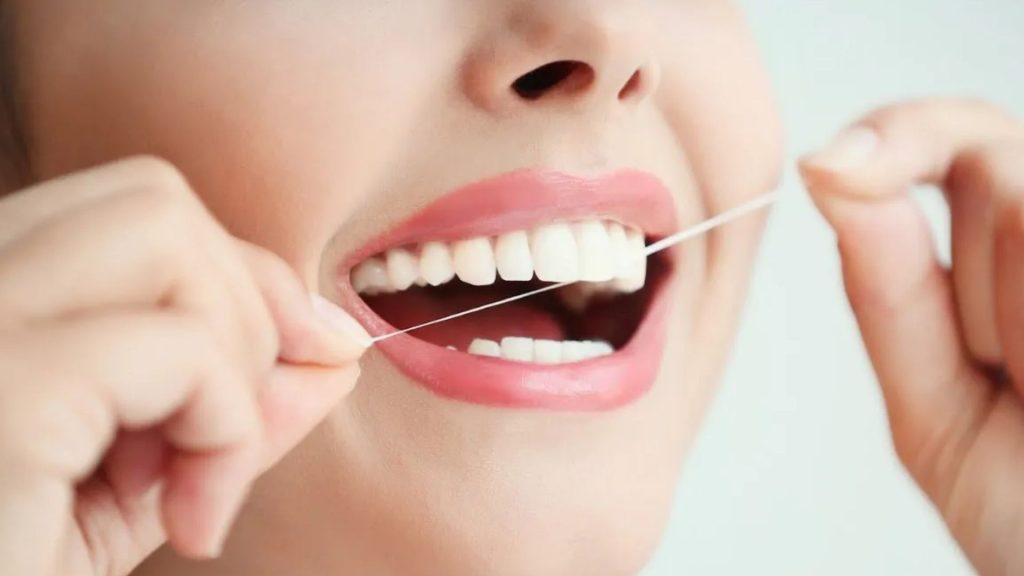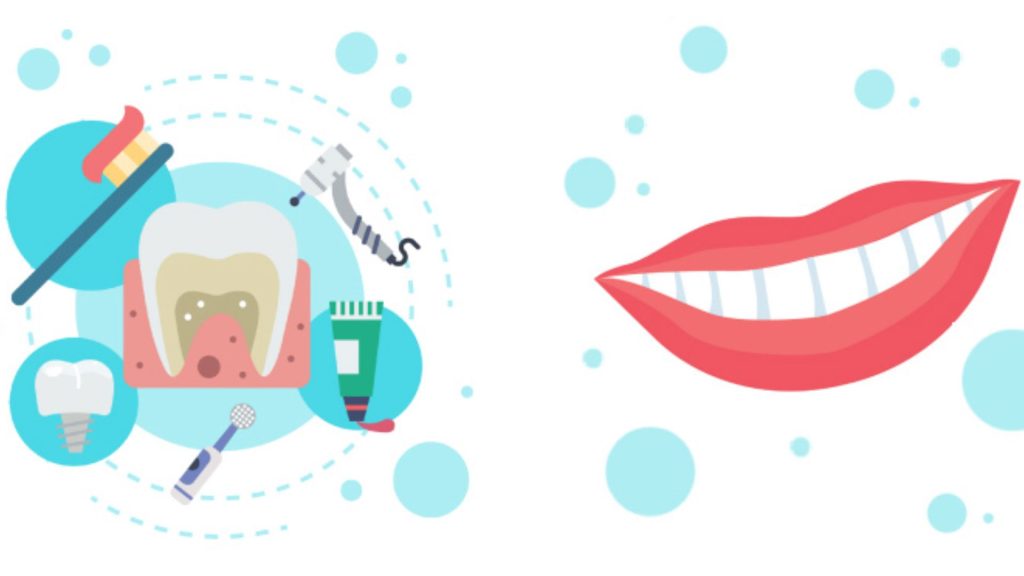Do You Smell Your Floss? Dental floss is often smelt after usage to verify it cleans well and removes plaque and food. Even though it may not seem significant, this practice demonstrates that you care for your teeth. The question is, why? Does dental floss odor harm oral health? This article examines all.
Do You Smell Your Floss?


Yes, some individuals smell their dental floss after they have used it. Some people do it as a personal habit to see whether they’ve efficiently eliminated any food particles or plaque from their teeth. For most individuals, floss smells bad. Do you know why? The primary goal is to maintain proper oral hygiene.
Why Do People Only Smell It After Using It?
Many individuals smell dental floss after brushing or going to the dentist. The following is the explanation behind this practice:
After using toothfloss, smell it to assess cleanliness. So, users can keep their mouths clean and free of food plaque and bad-breath germs. This helps preserve everyday conversation confidence and fresh breath.
Second, smelling dental floss may assess the dentist’s skills or ensure the therapy is done correctly. It ensures no issues persist following treatment or tooth cleaning.
Finally, some dental floss has nice scents, making usage seem refreshing. Users may feel more confident in their dental hygiene.
Why Does It Stink When I Floss?
Bad odor after flossing and dental care might happen for a variety of causes. Most of the time, this smell comes from food plaque and germs left in the mouth after brushing and flossing. Specific reasons may include food plaque and microorganisms that have not been entirely eliminated from the mouth region.
Additionally, ingesting meals and beverages with strong odors, such as onions, garlic, coffee, or other foods, might lead to foul breath after dental hygiene. Especially if the meal is still caught between the teeth.
Furthermore, various dental health disorders, such as gingivitis, tooth decay, or other dental diseases, might induce bad breath after oral hygiene. Due to oral bacteria growth, these illnesses typically induce foul breath.
Smelling Dental Floss After Usage Affects Oral Health
Depending on the individual’s practice and outlook, smelling dental floss after usage might have a beneficial or bad effect on oral health. Some potential outcomes include
Positive Effects | Negative Effects |
|
|
So, smelling dental floss after usage may not improve oral health and may potentially harm it. Good dental health depends on brushing, flossing, and rinsing as instructed by a professional.
Choose And Use Floss Appropriately


Daily dental hygiene is essential for sustaining oral and gum health. This requires floss or dental floss. Choosing and using the right floss can maximize performance and prevent tooth damage. To care for your teeth safely and efficiently, we’ll cover how to pick and use floss:
Floss Options
There are numerous crucial variables to consider when selecting dental floss to ensure you are using the floss that best meets your requirements.
First, choose a dental floss kind. There are different kinds of floss, like plate floss and dental floss for the home. Each kind has benefits, such as fiber floss being quicker to clean between teeth.
Additionally, thread size matters. Choose a floss size that fits between your teeth and is long enough to clean without hurting your gums.
The texture of the floss is another thing to think about. Most dental floss is nylon or PTFE. PTFE floss is better for sensitive gums and slips more easily between teeth.
Also, you need to think about how thick the thread is. Choose floss with a thickness that fits between teeth and doesn’t strain gums. Some dental floss has tastes or smells to make it more fun. Avoid these threads if you have sensitive skin or allergies. Brand and quality are other important factors to consider. Only buy reputed brands. Dental floss must be high-quality to avoid breaking.
Finally, consult with your dentist. They can recommend the right dental floss for your situation. For optimal dental health, follow flossing guidelines.
Use Floss Properly
Maintaining oral and gum health requires proper floss use. It is important to use floss correctly in order to efficiently clean your teeth and gums. In this part, we will show you how to use floss correctly and in detail to guarantee you have the greatest dental hygiene. Preparation: A good starting length for floss is 45-50 cm. Wrap the floss over your index fingers, but leave 2.5-5 cm of space between the ends. How to hold floss: Tighten the floss with your thumb and ring finger. Keep a little U-shaped portion in the center. Use floss:
- Insert the floss between teeth horizontally. Avoid gum injuries and punctures.
- Use an up-and-down motion to clean the sides of each tooth by bringing the floss below the gum line. Check to see whether the floss hurts your gums before using it.
- Use a new section of floss for each space between your teeth to avoid moving bacteria and plaque from one area to another.
Rinse your mouth after using floss. To sum up, maintaining healthy gums and teeth requires regular flossing. Consult your dentist for advice if you have trouble flossing.
Way To Avoid Post-Floss Odor?


There are tiny habits that may save you a lot of stress and anxiety in daily life. One of these behaviors may be how frequently you smell the dental floss after you use it. Although it may seem little, it demonstrates concern for your dental health. However, it is even more crucial to get dental checkups at a professional dental facility to verify that you are genuinely taking complete and effective care of your teeth. This not only guarantees that you have fresh breath after flossing, but it also allows you to address dental issues sooner.
Spring Orchid Dental Clinic is a trustworthy location for your dental health treatment. You will be greeted by a team of skilled and pleasant dentists who will use sophisticated technology to make each examination as comfortable and effective as possible. Maintaining a regular check-up plan at Spring Orchid Dental Clinic not only helps you keep your breath fresh but also assures healthy teeth for the rest of your life.
FAQs
What Other Ways Can You Enhance Your Breath Besides Flossing?
Improving foul breath is a key objective in sustaining oral health and everyday communication confidence. Besides flossing, there are additional methods to freshen breath.
Start by cleaning your teeth at least twice a day and using dental floss to clean in between your teeth. After each meal, rinse your mouth to eliminate food and germs that cause odor loss. Drinking enough water daily keeps the mouth’s bubbling fluid free of germs and food. Eat less onions, garlic, caffeine, and alcohol, which create foul breath. If you have oral problems like gingivitis or tooth loss, it’s important to treat them so you don’t have a bad smell. Beware of smoking and drinking, which may create foul breath.
Finally, sugar-free gum after meals induces bubbly saliva and improves breathing. Remember that enhancing your breath is part of oral health and self-confidence.
Is There A Method To Keep Dental Floss Clean?
There are guidelines and routines to maintain your dental floss clean and healthy. First, keep dental floss correctly. Keep it in an inconspicuous floss container out of direct sunlight and humidity. This keeps threads clean. Make sure you wash your hands well before you use dental floss so that bacteria on your hands don’t get on the floss. Avoid pressing on the gums during flossing. Choose the correct method to clean between teeth without gum damage. Limit how much air the thread gets to keep it from getting dry and brittle. Change the thread each time you use it or when it gets dirty or breaks. You’ll always utilize fresh, effective threads.
Finally, examine your teeth routinely at the dentist. Your dentist may evaluate your flossing and provide oral health tips. Following these recommendations and practices will keep your dental floss clean and safe for oral health.
When I Floss It Smells Like Poop?
If you notice a foul odor, similar to that of poop, after cleaning your teeth, you should have it checked out. This odor might have a number of possible origins. The presence of germs is often cited as a possible cause. Odor-causing compounds are produced when millions of bacteria digest food stuck between teeth and in the mouth. This might occur if you don’t regularly brush and floss your teeth.
Also, tooth decay and other dental disorders may contribute to unpleasant breath. If you’re curious about the foul odor associated with flossing, you should talk to your dentist. The dentist will diagnose the issue and provide solutions.





